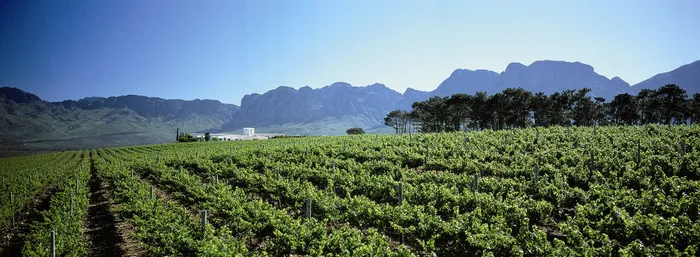Agribusiness Confidence Index shows slight decline amid global uncertainties
ECONOMY

Agricultural Business Chamber said that despite the slight decline, the current level of the ACI, implies that South African agribusinesses remain optimistic about business conditions in the country
Image: Supplied
South Africa’s Agricultural Business Confidence Index (ACI) edged down by five points to 65 in the second quarter, reflecting a slight dip in sentiment across the agribusiness sector, the Agricultural Business Chamber (Agbiz) said on Wednesday. The chamber noted that concerns over global trade uncertainty, persistent geopolitical tensions, and ongoing domestic animal disease outbreaks were among the main factors weighing on industry confidence.
"Despite the slight decline, the current level of the ACI, implies that South African agribusinesses remain optimistic about business conditions in the country," said Wandile Sihlobo, the chief economist at Agbiz. “The better summer rains and improvements at the ports which have enabled exports with minimal interruptions, are some of the positives. This survey was conducted in the second week of June, covering various agribusinesses operating in all agricultural subsectors across South Africa."
The ACI comprises ten subindices; six of them declined in quarter two, while the rest remained unchanged. The turnover subindex confidence was down by 5 points to 55. There was a deterioration in sentiment among agribusinesses operating in the red meat sector, while others maintained a roughly unchanged view from the previous quarter. Similarly, the net operating income subindex fell by 5 points to 65 points. The drivers were the same as the turnover.
The sub-index measuring export sentiment volume fell by 40 points to 60. Sihlobo said, “This is still a relatively favourable level. For example, in quarter one, South Africa's agricultural exports totalled $3.36 billion (R54 billion), up 10% from the same period a year ago, according to data from Trade Map. Thus, the decline in sentiment in quarter two is a normalisation.”
The general economic conditions subindex fell by 15 points to 50 in quarter two. "This indicates concerns about growth prospects this year due to both domestic and global constraints. The market share of the agribusiness subindex fell by 5 to 65 points in quarter two," Sihlobo said. "Most respondents maintained an essentially unchanged view, which enabled the high base to lead to a mild decline in sentiment.”
Sihlobo said the second-quarter ACI results for 2025 reflect an overall optimistic sentiment in the agricultural sector, with expectations of a recovery continuing through the year. However, he cautioned that the rebound is likely to be uneven, as certain key subsectors remain under pressure from ongoing animal disease outbreaks.
"The dominance of geopolitical concerns amongst respondents’ views illustrates South Africa's agricultural sector's strong dependence on export markets and the need to work to diversify markets," Sihlobo noted. “China, India, Saudi Arabia, and Egypt are among the key markets we should expand into.”
Francois Rossouw, the CEO of Southern African Agri Initiative (Saai), said the slight decline in the ACI is understandable given the pressures facing the sector.
“While confidence remains in positive territory, ongoing threats like foot-and-mouth disease, amongst others, continue to weigh heavily on the red meat industry. Globally, escalating geopolitical tensions and uncertainty over key trade relationships- especially with major partners like the United States, raise concerns for export-driven agribusinesses," he said.
These dynamics, alongside regional conflicts in Ukraine and the Middle East create planning difficulties for producers.
“While confidence remains resilient overall, strengthening biosecurity and maintaining stable, trade-friendly diplomacy will be essential to support continued recovery,” Rossouw said.
TLU SA general manager, Bennie van Zyl, is in agreement with most of the findings of ACI by Agbiz. “It must be noted that the agricultural sector is in a fluctuation of seasonal realities especially with rain. Some years we have better rain , some years we have late rain and some years we have no rain," Van Zyl said, "This is something that has a huge influence on the climatic side of the agricultural sector. There’s also the impact of crime on the agriculture sector such as produce theft and theft of cattle which is stock theft.”
Farmers have a huge challenge to overcome criminality on their farms. Van Zyl said as a result some farmers are also not investing as much in their farms due to uncertainties in South Africa, especially around the Expropriation Bill.
"If farmers don’t invest in their property it affects the confidence in the agricultural sector,” he said.
BUSINESS REPORT